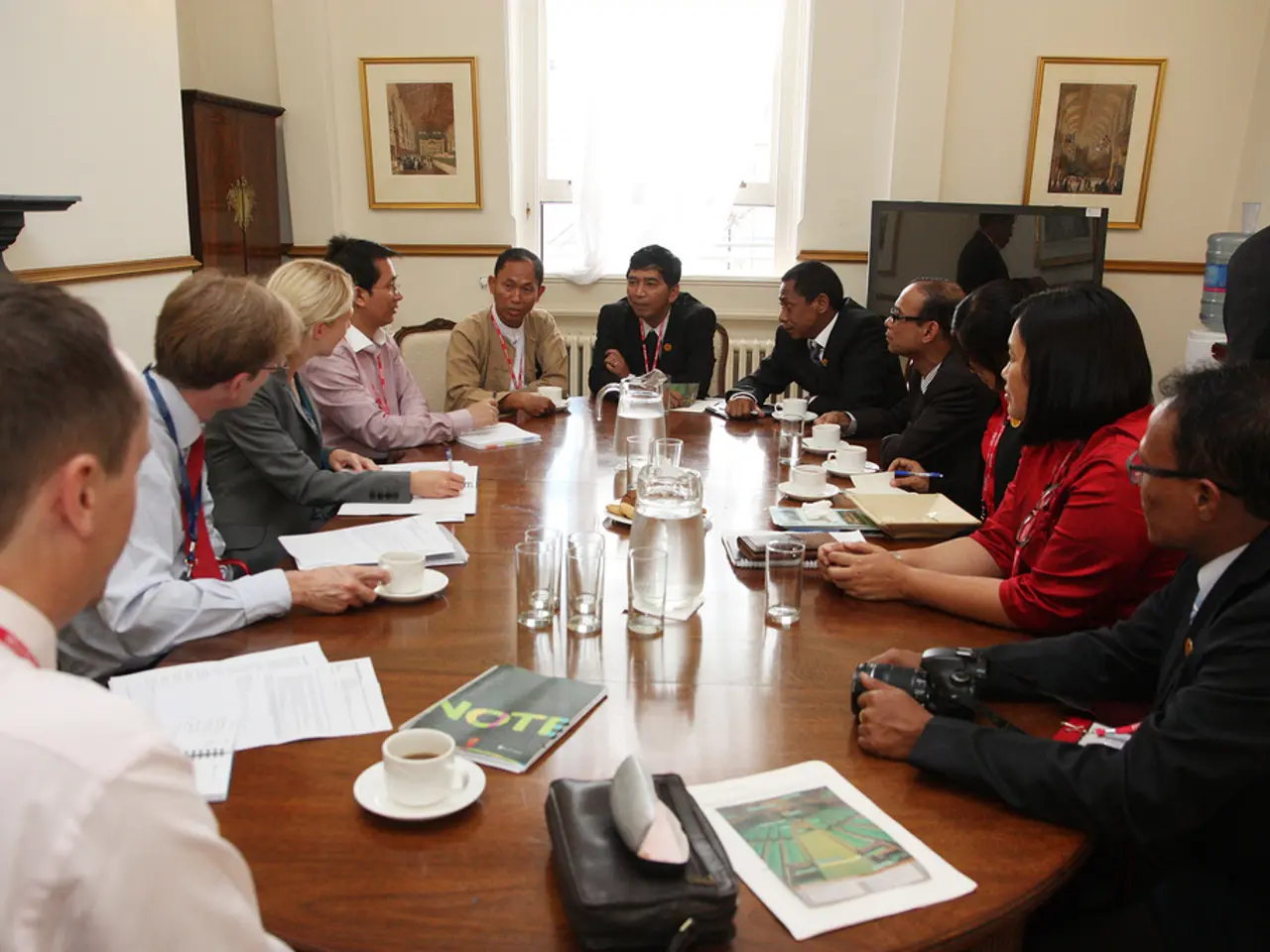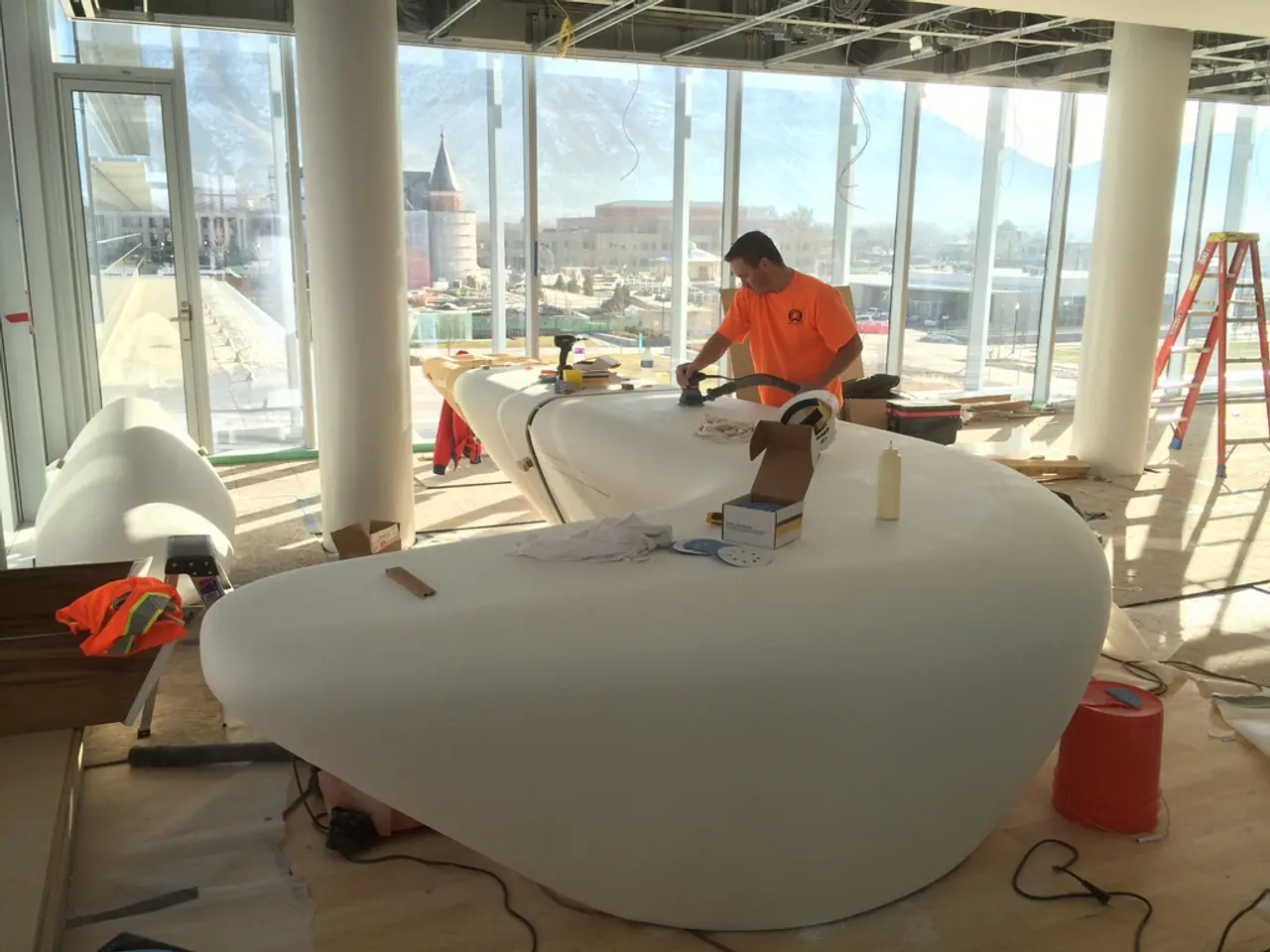Discovering if Dramatic Presentations in Workplace Gatherings Undermine Productivity?
Holy smokes, meetings can be a colossal waste of time, huh? They're like the office version of a bad pun - they take up precious minutes from your workday and rarely deliver the goods. But why is that, you ask? Well, let's dive in and dissect this Agenda Theatre situation.
You see, a detailed agenda may seem like the key to a productive meeting, but it ain't always the case, mate. Preparing an exhaustive agenda might make you feel productive, but it doesn't necessarily lead to efficient meetings. In fact, some researchers suspect that agendas can have the opposite effect, known as Agenda Theatre.
So, what's Agenda Theatre, exactly? It's when employees spend hours crafting meticulous agendas without actually improving the way meetings are run. They're essentially putting on a show, going through the motions without making any meaningful progress.
Now, let's consider the hidden costs of this Agenda Theatre. Putting together an intense agenda can be a significant time-suck – some executives admit to spending over three hours every week on this very task! And to add insult to injury, studies suggest that agendas don't actually improve meeting quality or keep them on track.
To combat Agenda Theatre and ensure your meetings are worth a damn, it's crucial to shift your focus from the agenda to the outcome. In other words, meetings should be about what needs to be achieved, not how you're going to run them.
By asking participants what they aim to accomplish in the meeting, you can help them set clear goals. Once objectives are set, they can act as a guiding principle for the planning and execution of the meeting. Here are some questions to kick things off:
- What's the purpose of this meeting? What's the desired outcome?
- In order to achieve that outcome, what points or themes should we discuss and resolve?
- Who are the key players needed to reach our goal?
- Is it necessary to have a structured plan beforehand, or can we be flexible and adapt during the meeting?
- Should we stick to a rigid timeline, or be mindful of flexibility to allow for discussions to go off script when needed?
Agendas might make you feel like something's been accomplished, but remember – it's the results that matter. Agenda Theatre is a whole lot of work for no real results. It can eat up time that could be spent doing productive work, leading to overly structured and unproductive meetings.
In some cases, meetings might not even require an agenda. Even when one is necessary, outlining major points might be sufficient. It's essential to consider whether the meeting is necessary at all before diving headfirst into agenda-planning. If it's indeed necessary, having a clear objective as the desired outcome should be enough.
By adhering to these guidelines – defining objectives, preparing a well-structured agenda, focusing discussions on agenda items, ensuring outcomes are followed up on, encouraging active participation, and building a transparent culture – you can steer clear of Agenda Theatre and craft meetings that are fruitful and engaging.
Sources:[1] The Conference Board – Good Governance Principles[2] McKinsey & Company – Stop scheduling meetings to avoid meetings[3] Harvard Business Review – Agenda Theater Is Ruining Your Meetings[4] Association of Parliamentary Titles and Names – Parliamentary Procedure in a Nutshell[5] Gallup – The Fundamentals of an Effective Meeting
Happy meeting, mate! Here's hoping you avoid the Agenda Theatre from now on. Remember, practice makes perfect, and every meeting is an opportunity to improve. Keep at it! 🤘🏽🤘🏼🤘🏾
finance plays a crucial role in determining the effectiveness of business meetings, as the time spent on agenda creation may impact the company's overall productivity and success.
Effective leadership involves focusing on the outcomes of meetings rather than solely putting together extensive agendas, as this approach fosters productive careers and progressive business growth.




